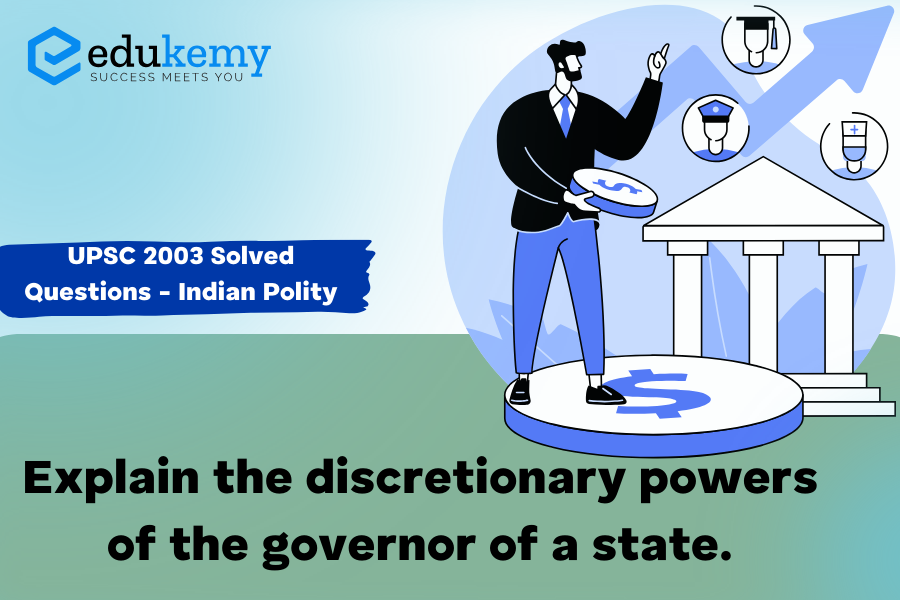
The discretionary powers of the governor of a state vary across different countries, but I’ll provide a general overview based on the typical role of a governor in a federal system, such as in India or the United States.
- Appointment of the Chief Minister: The governor has discretionary powers to appoint the Chief Minister of the state. Typically, the governor appoints the leader of the political party with a majority in the state legislature. However, in certain situations, the governor may use discretion if there is no clear majority or if the majority is uncertain.
- Dissolution of the Legislative Assembly: The governor may dissolve the state legislative assembly if, in their opinion, no party or coalition is able to form a government, or if there is a situation of political deadlock. This power is generally exercised in exceptional circumstances and is subject to constitutional limitations.
- Reservation of Bills for Presidential Assent: In federal systems like India, the governor may reserve certain bills passed by the state legislature for the consideration of the President of the country. This is typically done when a bill relates to a subject that falls within the concurrent list, and the president’s approval is required.
- Discretion in the Appointment of Ministers: The governor may have discretionary powers in appointing certain ministers in the state cabinet. This may include the appointment of nominated members, members from allied parties, or other individuals with expertise or experience deemed valuable by the governor.
- Dismissal of the Council of Ministers: In some cases, the governor may have the authority to dismiss the state cabinet or request the resignation of individual ministers. However, such powers are usually exercised in extreme situations, and the governor is expected to act impartially and in accordance with constitutional principles.
- Proroguing and Dissolving the Legislative Assembly: The governor has the authority to prorogue or dissolve the state legislative assembly on the advice of the Chief Minister. Proroguing involves suspending the sessions temporarily, while dissolution leads to the end of the assembly’s term and the calling of new elections.
It’s important to note that the exercise of discretionary powers by the governor is expected to be within the constitutional framework and guided by principles of fairness, impartiality, and constitutional norms. The governor generally acts on the advice of the Chief Minister and the Council of Ministers, but there are situations where the exercise of discretion becomes crucial for maintaining constitutional balance and upholding the democratic process.

Contents
In case you still have your doubts, contact us on 9811333901.
For UPSC Prelims Resources, Click here
For Daily Updates and Study Material:
Join our Telegram Channel – Edukemy for IAS
- 1. Learn through Videos – here
- 2. Be Exam Ready by Practicing Daily MCQs – here
- 3. Daily Newsletter – Get all your Current Affairs Covered – here
- 4. Mains Answer Writing Practice – here

